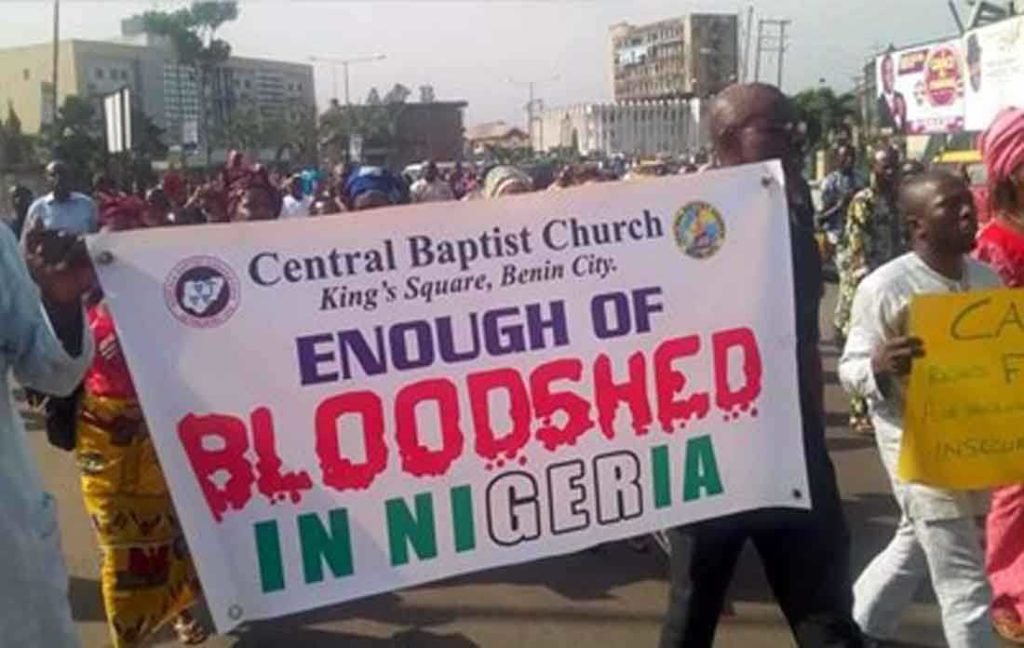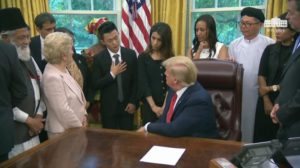
WASHINGTON — President Trump issued an executive order on Tuesday directing Secretary of State Mike Pompeo and United States Agency for International Development (USAID) Administrator John Barsa to develop a plan to prioritize religious freedom in U.S. foreign policy and in foreign assistance funding.
“Religious freedom, America’s first freedom, is a moral and national security imperative,” it reads. “Religious freedom for all people worldwide is a foreign policy priority of the United States, and the United States will respect and vigorously promote this freedom.”
The order instructs the secretary of the Department of State and the administrator of USAID to “develop a plan to prioritize international religious freedom in the planning and implementation of United States foreign policy and in the foreign assistance programs of the Department of State and USAID.”
It further mandates that at least $50 million a year be allotted for religious freedom efforts, including those that are “intended to anticipate, prevent, and respond to attacks against individuals and groups on the basis of their religion,” as well as to support accountability for perpetrators, to seek equal legal rights for those of all faiths, “to improve the safety and security of houses of worship and public spaces for all faiths; and to protect and preserve the cultural heritages of religious communities.”
Efforts will also be made in communication with countries that are known to infringe on religious liberty — especially those on the State Department’s Special Watch List and cited in its “Annual Report on International Religious Freedom”, urging leadership to “make progress in eliminating violations of religious freedom” and discussing cases surrounding individuals who are imprisoned because of their faith.
Secretary of the Treasury, Steve Mnuchin, in conjunction with Secretary of State Mike Pompeo, is authorized to place sanctions on countries that engage in significant human rights abuses.
The order also requires Department of State foreign service employees to undergo training on religious freedom every three years.
Read the order in full here as posted to the White House website.
The religious liberties organization Alliance Defending Freedom (ADF) applauded the executive order, remarking in a statement that the directive is a “step in the right direction.”
“No one should be persecuted because of their religion or beliefs,” said ADF International Director of Global Religious Freedom Kelsey Zorzi. “For too long, many countries have violated the fundamental rights of people of faith without any consequences. This executive order ensures that religious freedom will be thoroughly incorporated into U.S. foreign policy. It is a much-needed boost to efforts to protect everyone’s inalienable right to religious freedom.”
 As previously reported, Christians were among those who met with Trump in the oval office last July as he met with global survivors of religious persecution.
As previously reported, Christians were among those who met with Trump in the oval office last July as he met with global survivors of religious persecution.
“As Christians in Myanmar, we are being oppressed and tortured by the Myanmar military government,” one man stated. “We don’t have a chance for religious freedom as ethnic armed groups fight against the central military government. Please, American government, focus on ethnic people and ethnic leaders to get democracy and federalism.”
“My parents are pastors; they’re Christian pastors,” also shared a woman from Iran. “They’ve been arrested — all my family — my father, my mother, my brother. They are free on bail, awaiting the trial and long sentences.”
One man from North Korea shared that his cousin’s family had all been killed in the nation for preaching the gospel.
“[M]y aunt’s father-in-law was a Christian, and my cousin’s — her family — was executed because they were sharing [the] gospel,” he stated.
“Even [despite] the persecution of Kim Jong Un, the North Korean citizens, they want the gospel and they want to worship Him now,” he told the president. “They are worshiping in underground churches right now.”
Become a Christian News Network Supporter...


